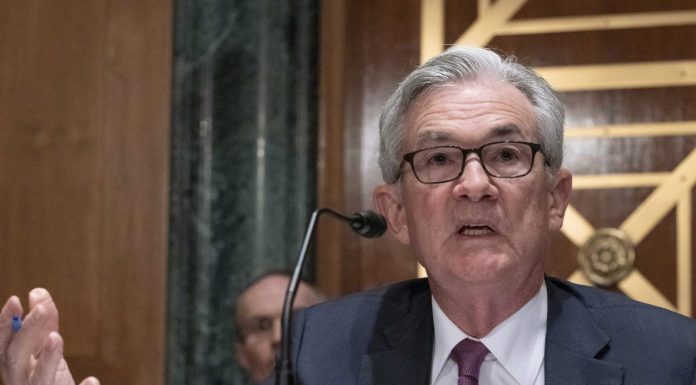Federal Reserve Chairman Jerome Powell sold between $1 million and $5 million in stocks right before the Dow took a dive at the beginning of October 2020, according to public disclosures.
The disclosure, obtained by the American Prospect, shows Powell sold up to $5 million worth of Vanguard Total Stock Market Index Fund shares on Oct. 1, 2020. A couple of weeks earlier, a separate sale of shares from the same fund sold between $50,000 and $100,000.
At the same time, Powell was urging Congress to pass a second COVID-19 relief bill. He spoke with then-Treasury Secretary Steven Mnuchin four times on Oct. 1, as well as House Speaker Nancy Pelosi, D-Calif.
Later that week, former president Donald Trump publicly rejected Pelosi’s COVID-19 relief proposal, and the Dow tumbled more than 1,400 points from its opening level for Oct. 1.
Powell is not the only Federal Reserve banker to come under scrutiny for recent stock trades.
Late last month, the presidents of the Federal Reserve banks in Boston and Dallas announced they would step down after financial disclosures revealed extensive stock trading in 2020, when the Federal Reserve was spending trillions of dollars to boost the economy.
And on Oct. 1 of this year, Federal Reserve Vice Chairman Richard Clarida came under fire for moving between $1 million and $5 million out of one mutual fund and into two other funds on Feb. 27, 2020, the day before Powell signaled a potential interest rate cut due to the pandemic.
The questionable trades led Sen. Elizabeth Warren, D-Mass., to call for an investigation into whether the bankers violated insider trading rules.
Powell is a “go-along-to-get-along leader who doesn’t know or doesn’t care when, on his watch, people with great responsibility advance their own interests over those of our nation, or someone who drags his feet in dealing with problems that shake the public’s confidence in the institution he leads,” Warren said on the Senate floor.
But under current law, Fed employees do not have to put their assets into private trusts over which they have no control, even if though they have knowledge of the inner workings of the economy.

